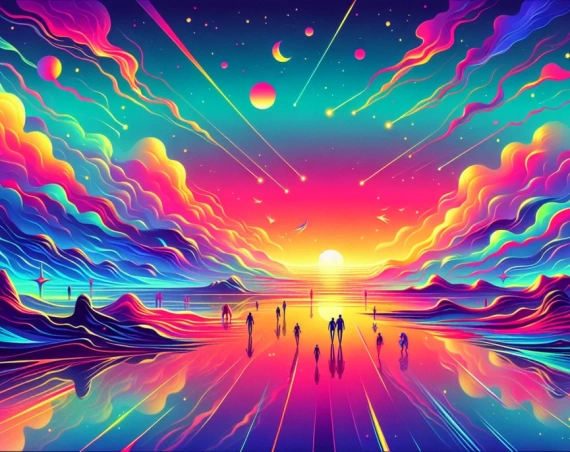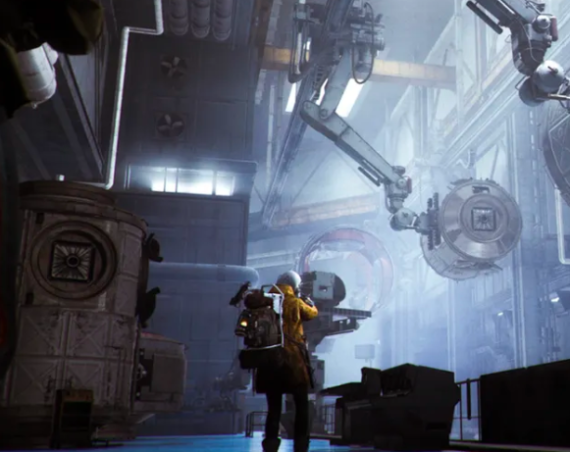
Alien: Earth Review – Arguably the Franchise’s Strongest Since James Cameron’s Aliens
This review is spoiler-free.
Introduction: A Bold Return to the Alien Universe
Alien: Earth has been eagerly awaited since its announcement in 2019, with Noah Hawley, the acclaimed showrunner behind Fargo and Legion, taking the helm in 2020. At the time, the Alien franchise felt dormant, especially after the disappointing reception of 2017’s Alien: Covenant. However, recent years have seen a revival, highlighted by last year’s successful Alien: Romulus, which was well-received by fans despite some excessive callbacks.
Alien: Earth arrives amid high expectations and some fan apprehension, especially about its timeline and relationship to existing films. Set in 2120, two years before the Nostromo’s devastating encounter on LV-426, the show firmly situates itself in the canonical Alien universe rather than an alternate reality.
Plot Overview: Corporate Intrigue Meets Xenomorph Horror
The story opens with the Weyland-Yutani ship USCSS Maginot crashing on Earth after a 65-year deep space expedition collecting extraterrestrial samples goes awry. The crash occurs in New Siam, a city governed by Prodigy, the youngest mega-corporation among “the Five” that dominate Earth.
Prodigy’s CEO, Boy Kavalier (Samuel Blenkin), has pioneered controversial research involving the transfer of consciousness from terminally ill children into artificial adult bodies, known as the “Lost Boys”—a nod to Peter Pan themes throughout the series. This aspect introduces thought-provoking ethical dilemmas without devolving into exploitative territory.
The Lost Boys, led by Wendy (Sydney Chandler), are dispatched to recover alien specimens from the Maginot crash site amid corporate rivalries, especially from Yutani (Sandra Yi Sencindiver) who seeks to reclaim the precious cargo. This intersection of corporate ambition and extraterrestrial menace forms the show’s dark and compelling core.
Strong Points of Alien: Earth
- Atmospheric and Immersive Experience: The show expertly recreates the aesthetic and atmosphere of Ridley Scott’s original Alien movie with “cassette futurism” design elements while expanding the universe’s scope.
- Outstanding Cast Performances: Sydney Chandler’s portrayal of Wendy brings a balance of youthful curiosity and hardened resilience, complementing a cast that convincingly embodies tension and terror.
- Innovative Creature Effects: Introducing four new alien species alongside the classic Xenomorph, the series refreshes the franchise’s horror elements without losing the iconic monster’s terrifying allure.
- Exploration of Ethical and Corporate Themes: The series delves into the darker side of corporatism, artificial consciousness, and humanity’s complex relationship with technology, adding narrative depth beyond creature horror.
Challenges and Critiques
- Uneven Tone: Episode 3’s attempt at humor clashes with the overall ominous tone, making some scenes feel out of place.
- Plot Complexity: The “Lost Boys” concept, while intriguing, sometimes suffers from underdeveloped story arcs, leaving certain character motivations less clear.
Deeper Impact and Real-World Context
Alien: Earth stands out for its thoughtful integration of bioethical questions and futuristic technology. It addresses the growing societal fascination and unease with artificial intelligence and consciousness transfer, echoing current scientific debates about AI ethics and transhumanism. Recent advancements in neural interface technologies, such as Elon Musk’s Neuralink, bring speculative fiction closer to reality, making the show’s themes resonate well with contemporary issues (Nature, 2021).
The corporate intrigue and themes of exploitation parallel ongoing discussions about corporate overreach in technological development, a subject of widespread scholarly attention in media studies (Media, Culture & Society, 2021).
Case Study: Audience Reception
In early viewership tracking, Alien: Earth boasts the franchise’s third-highest Rotten Tomatoes score behind only the original Ridley Scott film and James Cameron’s Aliens. This reflects both critical acclaim and fan satisfaction, signaling successful rejuvenation of the beloved series (Rotten Tomatoes).
Conclusion: A Ferocious, Ambitious Evolution of the Alien Legacy
With six of its eight episodes available for review, Alien: Earth emerges as a daring and captivating addition to the Alien franchise. It combines brutal and graceful portrayals of its iconic creatures with a compelling narrative infused by timely themes around humanity, technology, and corporate power.
Noah Hawley’s vision promises a multi-season arc, potentially expanding the mythology for years to come. Alien: Earth revitalizes the franchise’s signature mystery and horror, sculpting a series that is both familiar and refreshingly new.
Key Facts About Alien: Earth
- Release Dates: August 12 (US on Hulu), August 13 (UK on Disney Plus)
- Showrunner: Noah Hawley
- Episodes Reviewed: 6 out of 8
- Primary Platforms: Hulu (US), Disney Plus (UK)
Alien: Earth is a must-watch for fans of sci-fi horror, providing a rich, atmospheric experience anchored by strong performances and innovative creature design.
For those interested in exploring similar content, consider browsing newer sci-fi and horror TV shows that continue to push genre boundaries.


